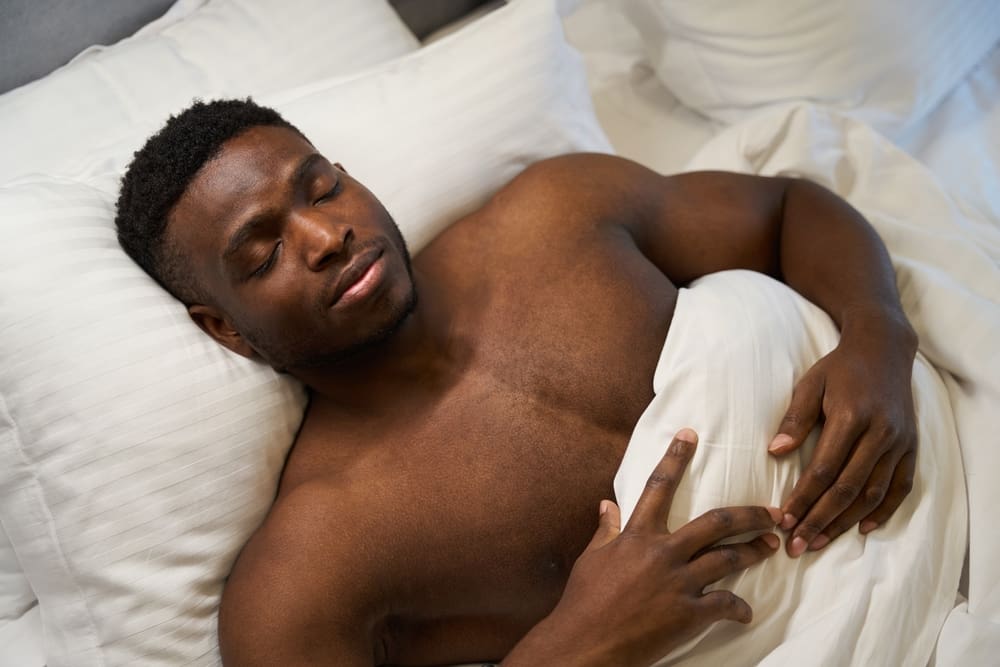The scenario plays out in countless bedrooms and has become a common relationship complaint: after passionate intimacy, he rolls over and falls immediately into a deep sleep while she remains awake, perhaps feeling a desire for connection or conversation. This phenomenon isn’t just a relationship stereotype—it has legitimate biological underpinnings that affect men differently than women.
The biological cascade that leads to post-sex sleep
When examining why men often drift off to sleep shortly after sexual activity, several physiological mechanisms work in concert to create this familiar pattern. The male body undergoes a specific sequence of hormonal and neurological changes during and after sex that collectively promote drowsiness.
The prolactin effect
Perhaps the most significant factor in post-intimacy sleepiness is the dramatic increase in prolactin levels that occurs in men following orgasm. This hormone serves multiple functions in the body, but its post-orgasmic release has particularly powerful effects:
Prolactin counteracts the effects of dopamine, the “motivation” neurotransmitter that drives sexual desire. This chemical shift effectively turns off sexual arousal.
The hormone promotes feelings of sexual satisfaction and relaxation, creating the perfect conditions for sleep onset.
Research indicates that men experience a substantially larger prolactin surge after orgasm compared to women, which may partly explain the gender difference in post-sex alertness.
This hormonal response appears to be nature’s way of creating a refractory period, allowing the body time to recover before another round of sexual activity becomes physiologically possible.
The oxytocin-vasopressin balance
Sexual activity triggers the release of several bonding hormones, most notably oxytocin and vasopressin. While both men and women experience an oxytocin surge during intimacy, men produce more vasopressin:
Oxytocin, often called the “cuddle hormone,” promotes feelings of bonding and emotional connection.
Vasopressin similarly encourages attachment but has additional effects that may contribute to drowsiness in men.
This hormonal cocktail creates a deep sense of relaxation and contentment—perfect conditions for falling asleep.
Energy expenditure and physical exertion
The physical nature of sexual activity itself contributes significantly to post-coital fatigue:
Men typically expend more calories during sex than women, with estimates suggesting men burn between 100-300 calories during an average sexual encounter.
Heart rates elevate substantially during intercourse, often reaching levels comparable to moderate exercise.
This combination of energy expenditure, elevated heart rate, and subsequent return to baseline creates a physical state conducive to sleep.
Psychological relaxation and stress reduction
Beyond the purely physiological factors, sexual activity offers powerful psychological benefits that promote sleepiness:
Sex effectively reduces stress levels by lowering cortisol, the primary stress hormone.
The mental relaxation that follows sexual release can help quiet an active mind, making it easier to drift off to sleep.
For men who may have difficulty expressing emotion in other contexts, the vulnerability of sexual intimacy can provide a rare emotional release that leads to profound relaxation.
Evolutionary perspectives on post-sex sleep
From an evolutionary standpoint, the tendency for men to fall asleep after sex may have served several adaptive functions throughout human development:
Conservation of resources
In prehistoric environments where energy conservation was crucial for survival, the ability to transition quickly from one biological drive (reproduction) to another (rest and recovery) would have been advantageous.
Sexual activity represents a significant energy expenditure, particularly for males. The subsequent sleep period allows for efficient recovery.
Protection during vulnerability
The post-orgasmic state represents a period of vulnerability from an evolutionary perspective:
Sleep after mating may have helped early humans conserve energy while remaining in physical proximity to their mate.
This proximity provided protection during a time when both individuals might otherwise be vulnerable to predators or rival males.
The neurohormonal changes that promote sleep after sex may have evolved as a mechanism to ensure males remained with their partners long enough for conception to occur.
Differences in male and female experiences
While men typically experience a pronounced “sleep after sex” effect, women often report increased alertness or even insomnia following intimacy. Several factors contribute to this gender difference:
Hormonal distinctions
Women experience a different hormonal cascade following orgasm:
The female prolactin response, while present, is typically less dramatic than in men.
Estrogen influences sleep architecture differently than testosterone, potentially making women less susceptible to immediate post-sex drowsiness.
Women who don’t experience orgasm during sexual encounters miss out on the prolactin surge entirely, which may contribute to post-sex alertness.
Evolutionary explanations
From an evolutionary perspective, female alertness after sex may have served protective functions:
Remaining alert after mating could have allowed ancestral women to assess the suitability of their partner.
This period might also have provided time to engage in bonding behaviors that would encourage male investment in potential offspring.
Psychological factors and relationship implications
Beyond biology, psychological factors play important roles in post-sex behavior patterns:
Trust and vulnerability
Sexual intimacy represents a period of significant vulnerability, particularly for men:
The release of sexual tension can lower psychological defenses that men typically maintain.
This vulnerability, combined with the physiological factors mentioned earlier, creates ideal conditions for sleep.
In relationships with high trust, this vulnerability feels safe, enhancing the sleep-promoting effects.
Emotional connection versus physical release
Men and women often approach sexual intimacy with different primary motivations:
While both genders seek both physical and emotional fulfillment, research suggests men may place greater emphasis on physical release.
Women more frequently report valuing the emotional connection aspect of sexual encounters.
These different priorities can lead to mismatched expectations for post-sex behavior.
Relationship consequences and solutions
The tendency for men to fall asleep after sex can create relationship tension when partners have differing expectations for post-intimacy connection:
Communication is key
Understanding the biological basis for post-sex sleepiness can help couples approach the situation with empathy rather than frustration.
Discussions about expectations for post-sex connection should happen outside the bedroom, not in the moment.
Couples can develop compromises that respect both biological realities and emotional needs.
Practical approaches
Several strategies can help couples navigate the biological reality of male post-sex sleepiness:
Engaging in intimate activities earlier in the evening rather than right before bed can provide time for both connection and rest.
Brief conversations or moments of connection before sleep sets in can help meet emotional needs.
Understanding that the sleep response doesn’t indicate lack of interest or emotional connection can reduce relationship tension.
When to seek help
While post-sex sleepiness is normal and biologically based, certain situations might warrant medical attention:
Extreme fatigue that extends well beyond the bedroom might indicate underlying health issues such as sleep apnea or low testosterone.
Sudden changes in sexual function or post-sex energy levels should be discussed with healthcare providers.
Persistent relationship conflicts surrounding intimacy might benefit from couples counseling.
The bigger picture: sleep, sex, and relationship health
The intersection of sleep and sexual health represents an important aspect of overall relationship wellbeing:
Mutual benefits
Both quality sleep and satisfying sexual relationships contribute to overall health and relationship satisfaction.
Understanding and accommodating biological tendencies can strengthen relationships rather than create conflict.
Breaking stereotypes
Recognizing the biological basis for post-sex sleepiness helps move the conversation beyond stereotypes or accusations of selfishness.
Not all men experience the same degree of post-sex sleepiness, and individual variations are normal.
By understanding the complex biological mechanisms behind the tendency for men to fall asleep after sex, couples can approach this common pattern with greater empathy and develop strategies that respect both biological realities and emotional needs. What might otherwise become a source of relationship conflict can instead become an opportunity for deeper understanding and connection.


















